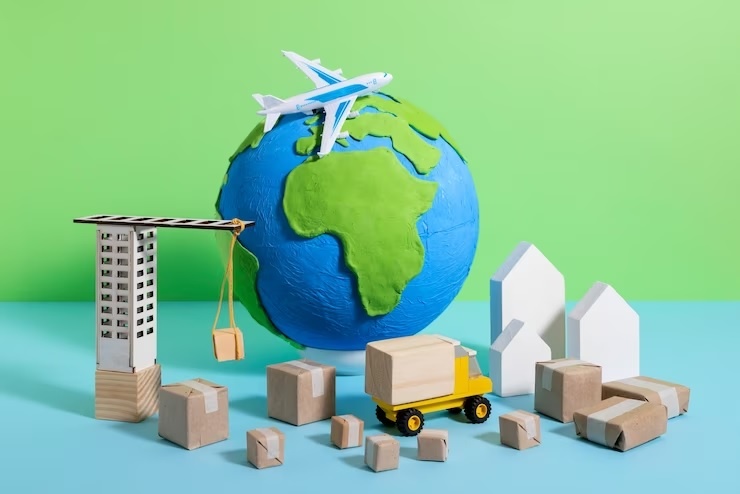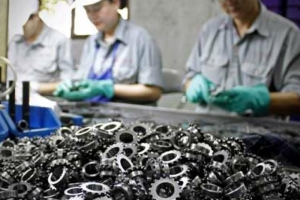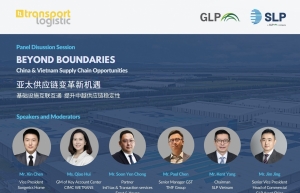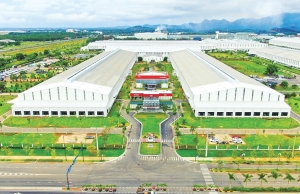Notable businesses ramp up dedication to greener causes
 |
| Notable businesses ramp up dedication to greener causes, illustration photo/ Source: freepik.com |
Nguyen Quang Vinh, vice president of the Vietnam Chamber of Commerce and Industry, said at last week’s Sustainable Business Forum in Hanoi that the circular economy was emerging as a typical trend in global sustainable business when opening up market opportunities to $4.5 trillion annually, according to research from Accenture Strategy.
“Businesses need to seize opportunities and align long-term growth processes with the sustainable benefits of the community, environment, and society,” Vinh said. “The success of an enterprise is now not only reflected in financial numbers but also in its ability to adapt, withstand and recover from unprecedented challenges.”
Building a green supply chain and developing business models towards the goal of reducing carbon is becoming a key pillar for businesses. Nguyen Thi Ngoc Hue, director of Communications and External Relations at AEON Vietnam, said the business had implemented a number of initiatives to support customers and employees to raise awareness and establish sustainable consumption habits.
For just over a year, an environmental bag rental service has been deployed throughout the AEON supermarket system, contributing to reducing the consumption of plastic bags at the brand’s supermarkets and department stores.
“There are about 2,000 customers who refuse to use plastic bags every day when shopping, and the number of environmental bag rentals has reached about 20,000 per day,” Hue said.
AEON Vietnam has converted packaging and plastic bags at supermarkets into environmentally friendly materials, and 98 per cent of shopping bags at AEON locations are now biodegradable.
“AEON accepts an increase in costs in the short term to spread a green lifestyle to customers, but the long-term value we receive is the love for the brand and the trust from customers and partners,” Hue said.
Nestlé is also a brand that is running initiatives that focus on green and ethical activities, such as helping Vietnamese children stay active, using digital technology to help farmers manage their farms better, utilising the circular economy in coffee processing, and promoting women’s empowerment and income generation.
“Creating value for society is Nestlé’s driving force in Vietnam,” said Binu Jacob, chairman and CEO of Nestlé Vietnam and co-chair of Vietnam Business Council for Sustainable Development. “For decades, businesses have focused on total shareholder return. However, for sustainable and long-term development, businesses not only create value for shareholders, but also need to create total societal impact,” he added.
The NESCAFÉ Plan sustainable coffee farming programme, launched by Nestlé in the Central Highlands provinces 12 years ago, has led to 22,000 farmer households gaining access to and practising sustainable coffee production. The initiative has also contributed to reducing 20 per cent less pesticides and 40 per cent water savings, helping farmers to increase their income by up to 100 per cent by applying reasonable intercropping models.
Climate change is threatening coffee production as suitable land for coffee cultivation shrinks, and bean quality and yields decline, according to a report by HSBC in August.
In the report, as many as 125 million people depend on coffee production for their livelihood, but rising temperatures and a changing climate have put plantations under threat. “Global demand for coffee is likely to triple its production by 2050. In our view, improving the sustainability of this vast industry will be key to limiting its social and environmental impacts across the entire value chain,” the report said.
Utilising waste is another green practice that more and more businesses are embracing.
“Optimising resources in agricultural farming, using renewable energy will help businesses save millions of US dollars per year, increasing revenue and profit, and enhancing brand value when going to the international market,” said Nguyen Trung Anh, director of research and development of The PAN Group.
The company’s shrimp processing industry deals with about 7,500 tons of shrimp heads and shells, according to Trung Anh. Instead of having to spend a lot of money to treat this waste, the group has partnered with a shrimp shell processing company to collect an additional $600,000 per year from processing shrimp shell by-products.
“This is one of the recycling production models that helps businesses both save production costs, maximise profits, and more importantly, help businesses move towards realising a sustainable development model,” Anh said.
 | Vietnamese auxiliary manufacturers must engage in global supply chain Vietnamese auxiliary manufacturing businesses need to join in and become a component of the global supply chain. |
 | Vietnam remains a popular destination for supply chain diversification Vietnam was highlighted as a growing significant destination for supply chain diversification among China and other countries at the event themed 'Beyond Boundaries - China and Vietnam Supply Chain Opportunities' held on June 14 in Shanghai. |
 | Greener industrial parks a manufacturing prerequisite Industrial property developers will have to follow green criteria such as LEED certification if they want to attract high-valued tenants into their complexes. |
What the stars mean:
★ Poor ★ ★ Promising ★★★ Good ★★★★ Very good ★★★★★ Exceptional
Related Contents
Latest News
More News
- Wages and Lunar New Year bonuses on the rise (February 09, 2026 | 17:47)
- Temporary relief for food imports as businesses urge overhaul of regulations (February 07, 2026 | 09:00)
- Opella and Long Chau join forces to enhance digestive and bone health (February 06, 2026 | 18:00)
- Vietnam-South Africa strategic partnership boosts business links (February 06, 2026 | 13:28)
- Sun PhuQuoc Airways secures AJW Group support for fleet operations (February 06, 2026 | 13:23)
- Pegasus Tech Ventures steps up Vietnam focus (February 05, 2026 | 17:25)
- The generics industry: unlocking new growth drivers (February 04, 2026 | 17:39)
- Vietnam ready to increase purchases of US goods (February 04, 2026 | 15:55)
- Steel industry faces challenges in 2026 (February 03, 2026 | 17:20)
- State corporations poised to drive 2026 growth (February 03, 2026 | 13:58)

 Tag:
Tag:


















 Mobile Version
Mobile Version